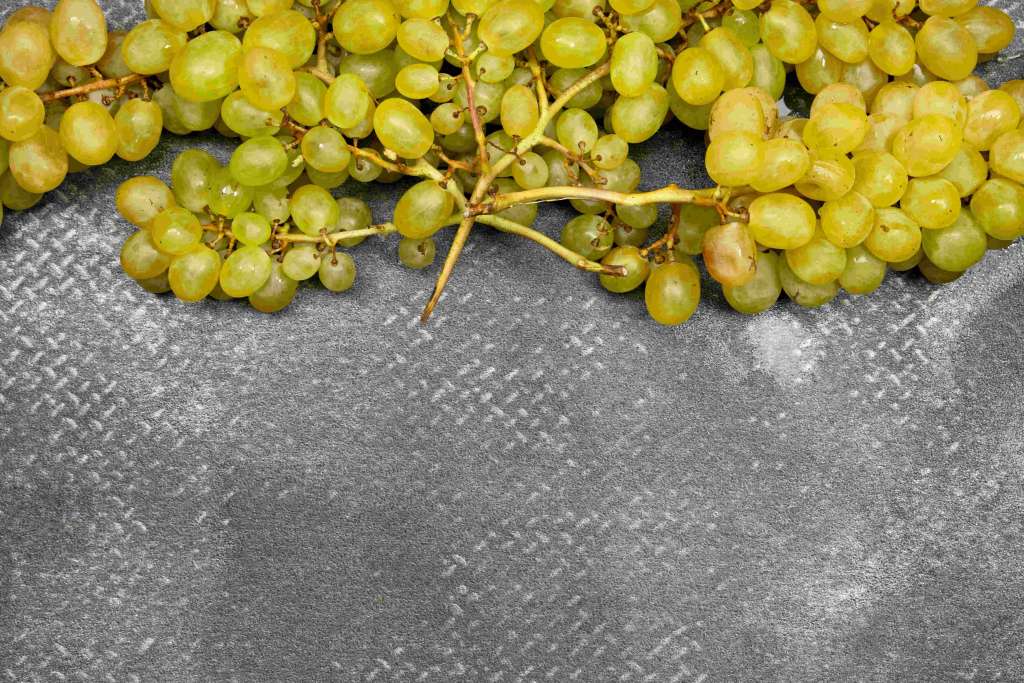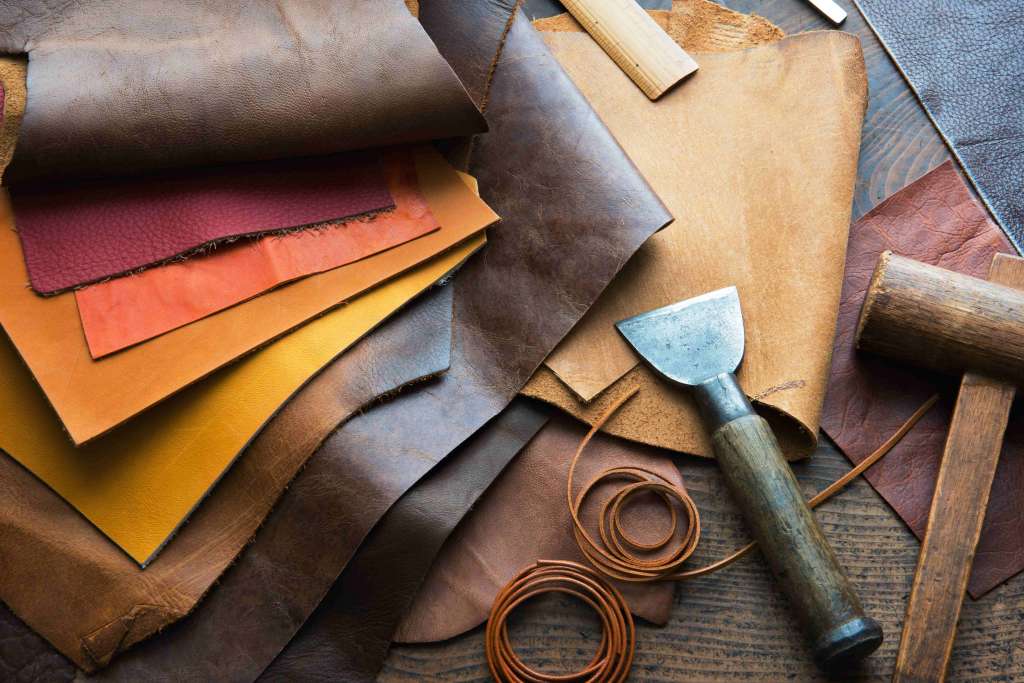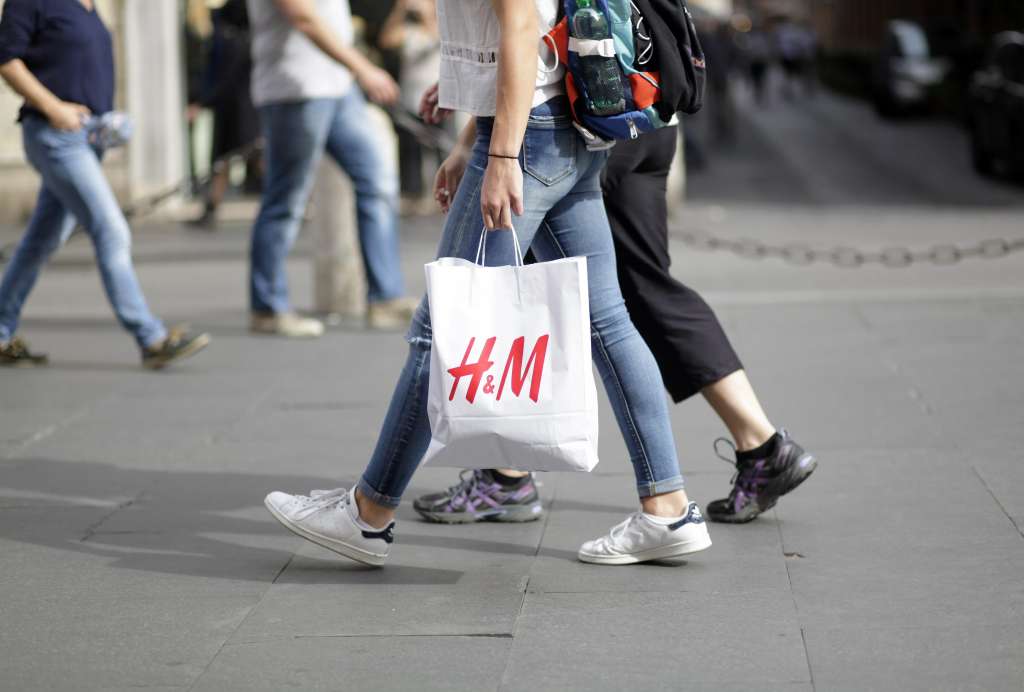H&M’s grape leather: A step toward sustainable fashion



Summary: Moving beyond recyclable materials, sustainable fashion now entails using materials made from bio-waste. Fashion retail brand H&M’s initiatives to create a waste-free fashion industry include the use of fabrics like grape leather, pineapple leather, orange silk, and a biodegradable fabric made from cow manure.
What seemed like useful innovations in the past are now adding to the planet’s waste. Plastic, synthetic materials created for fast fashion, packaging materials, and toxic waste—all end up in landfills. To address the problem, brands are redefining fashion with sustainable and environmentally friendly clothing. A few are taking a step forward to implement the concept of circularity that takes a zero-waste approach to fashion.
As part of its initiative to create a waste-free fashion industry, the fashion brand H&M recently unveiled vegan leather made from winemaking byproducts. The Italian-made vegan leather, VegeaTM was part of H&M’s 2020 Conscious Exclusive collection that has also featured pineapple leather and orange fiber silk in the past. Going forward, ‘grape leather’ will be featured on handbags and shoes.
What is Grape Leather?
In 2017, VegeaTM won the H&M Global Change Award for its innovative “wine leather” product. Yes, the green, cruelty-free leather is made from leftovers of grapes! The name Vegea comes from veg (vegan) and gea (earth). The vegetal leather alternative is made using winemaking waste.
Developed in association with Italian wineries, this grape leather is free from harmful substances, heavy metals, and solvents. It is also animal-friendly. The process features turning discarded grape skins, seeds, and stems into beautiful vegan leather. Bio-based grape leather feels like real leather, stable, smooth, and soft. It is also durable and water-resistant.

The idea is to use more waste and bio-based materials in the brand’s clothing to encourage circularity. The concept of circular economies discourages the use of finite resources for economic activity. It focuses on the regeneration of nature by circulating products and materials and eliminating waste and pollution.
How Does it Help?
Synthetic textiles use around 100 million tonnes of oil—harmful petrochemicals—every year. Synthetic leather releases toxic chemicals into the ground when it makes its way to landfills. A bio-based material like Vegea shuns these toxic chemicals. Leftover grape skins, seeds, and stems are combined with vegetal oils to create the leather-like fabric. It is available in many colors, textures, elasticities, and thicknesses.
The benefits of such bio-based fabrics are twofold. While grape leather promotes sustainability in fashion, it also makes use of wineries' waste. The annual waste from the wine industry is estimated to be seven million tons. Burning this emits CO2 while turning it into fresh materials completes the circle of a zero-waste approach. Other than the fashion industry, grape leather can also be used in upholstery and packaging.

Whether it is luxury houses or fast-fashion brands, companies are turning to greener products and practices. This is because of increasing consumer interest in sustainable practices. It boosts the brand’s product image and projects them as an environmentally responsible enterprise.
Other H&M Innovations
The brand, like many others, is making conscious efforts to support environmentally focused, impactful innovations. By 2030, H&M aims to switch to 100 percent recycled and sustainable materials. It is also using a dye made from coffee grounds that are collected from its China offices. According to the brand, it aims to design clothes that last longer and can be recycled at the end. They seek to involve customers in more sustainable behavior by using these future-friendly materials that are both fashionable and environmentally friendly.
Other H&M Global Change Award winners include a biodegradable fabric made from cow manure, and denim dyed using a powder extracted from used denim.

Wine Shoes, Banana Shoes
The fashion retail giant last year partnered with shoemaker Good News to market footwear made from recycled materials. The footwear is made using Vegea, grape leather, and waterproof Banantex, banana fibers. The result was a unisex collection featuring a slider and seven trainers. The collection also features bio-based materials like recycled cotton and Bloom Algae EVA made from algae biomass. The collection was made available at selected Scandinavian H&M locations.
A Step Forward to Zero Waste
When retail giants like H&M make conscious efforts to counter the fashion industry’s negative environmental impacts, consumers will take note. The sustainable arm of the fashion brand has unveiled vegan leather made from wine waste, which banishes harmful oils and chemicals, and is cruelty-free. This bio-based leather promotes a circular economy that focuses on the regeneration of nature.
H&M is making increasing use of bio-based fabrics to cut down on the damage caused by animal and synthetic leather production. Even if you are a smaller brand looking to do your bit for the environment, you can gradually introduce recyclable materials in your garments and their packaging.
Key Takeaways

- Brands are redefining fashion with environmentally friendly practices and bio-based textiles
- Fashion retail giant H&M unveiled grape leather as part of its efforts to create a waste-free industry
- Italian-made vegan leather, VegeaTM initially won the H&M Global Change Award
- Grape leather is made using discarded grape skins, seeds, and stems mixed with vegetal oils
- Grape leather is free from harmful substances, heavy metals, and solvents, and is also animal-friendly
Fashinza can connect you with reliable partners who can assist you in your sustainability journey.
Make your business eco-friendly. Connect with us at Fashinza today!



















